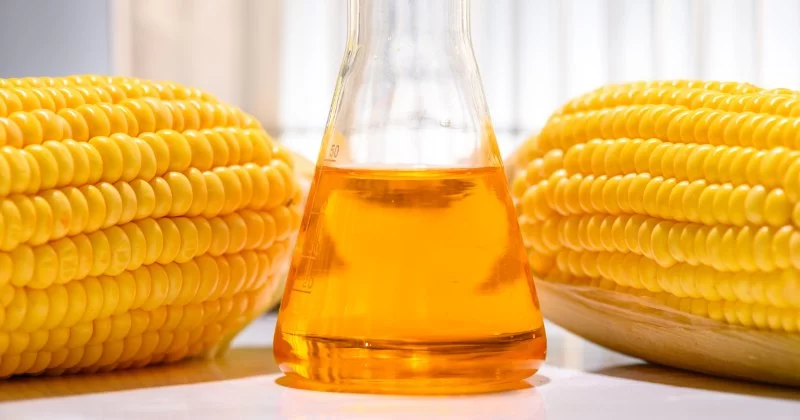- 1. Understanding High Fructose Corn Syrup
- 2. How High Fructose Corn Syrup Affects Your Heart
- 3. The Link Between High Fructose Corn Syrup and Heart Disease
- 4. Real-Life Cases of High Fructose Corn Syrup’s Impact on Health
- 5. How to Reduce High Fructose Corn Syrup in Your Diet
1. Understanding High Fructose Corn Syrup
High Fructose Corn Syrup (HFCS) is a sweetener derived from corn starch. It's commonly found in processed foods and beverages, such as soft drinks, snacks, and baked goods. Over the years, HFCS has become a major contributor to the modern diet due to its cost-effectiveness and ability to enhance flavor and shelf life. However, what many people don’t realize is that HFCS can have significant consequences for their health, particularly for their heart.
HFCS is made up of glucose and fructose in varying amounts, with the most common forms being HFCS-42 (42% fructose) and HFCS-55 (55% fructose). The high levels of fructose in these sweeteners are of particular concern, as they can lead to various metabolic issues that affect heart health.

2. How High Fructose Corn Syrup Affects Your Heart
The impact of HFCS on heart health is not just about its calorie content. It’s the way HFCS is metabolized in the body that contributes to heart disease. Here’s how it affects your heart:
- Increased Fat Storage: When you consume high amounts of fructose, your liver processes it and converts it into fat. This fat can accumulate in the liver, leading to non-alcoholic fatty liver disease (NAFLD). Over time, this fat can spill over into the bloodstream, leading to higher levels of triglycerides — a type of fat that can increase the risk of heart disease.
- Increased Blood Pressure: Studies have shown that diets high in HFCS can contribute to high blood pressure. This is because excessive fructose intake may alter kidney function, leading to an increase in sodium retention, which elevates blood pressure.
- Insulin Resistance: Excessive consumption of HFCS has been linked to insulin resistance, a precursor to type 2 diabetes. Insulin resistance increases the risk of heart disease by promoting inflammation, narrowing of blood vessels, and abnormal blood clotting.
Over time, these metabolic disturbances can lead to a range of cardiovascular issues, including plaque buildup in the arteries, higher cholesterol levels, and an increased risk of heart attacks and strokes.
Atlanta Heart Specialists
atlanta heart specialists
4375 Johns Creek Pkwy #350, Suwanee, GA 30024, USA

3. The Link Between High Fructose Corn Syrup and Heart Disease
Research has shown a strong connection between the consumption of HFCS and the development of heart disease. Several studies have highlighted the role of HFCS in promoting conditions like obesity, diabetes, and high blood pressure — all of which are significant risk factors for cardiovascular disease.
One of the most concerning effects of HFCS is its contribution to the development of metabolic syndrome. This syndrome is a cluster of conditions, including high blood pressure, high blood sugar, excess abdominal fat, and abnormal cholesterol levels, which together increase the risk of heart disease.
Moreover, a study published in the “Journal of the American College of Cardiology” found that individuals who consumed higher amounts of fructose had an increased risk of developing coronary artery disease (CAD). This is due to the way HFCS negatively impacts lipid metabolism and promotes inflammation in the body, both of which are contributing factors to the development of heart disease.
4. Real-Life Cases of High Fructose Corn Syrup’s Impact on Health
The impact of HFCS on heart health is not just theoretical — real-life cases demonstrate how consuming high levels of HFCS can contribute to serious heart conditions. Consider the case of a middle-aged man who consumed sugary drinks and processed foods regularly. Over the years, he developed obesity and high blood pressure, which eventually led to a heart attack. His doctor linked his poor diet, especially the high intake of HFCS-laden beverages, to his cardiovascular issues.
Similarly, studies have shown that populations that consume higher amounts of HFCS have a greater prevalence of heart disease. In fact, in the United States, where HFCS is widely consumed, heart disease remains the leading cause of death, prompting health experts to urge a reduction in the intake of processed sugars like HFCS.
5. How to Reduce High Fructose Corn Syrup in Your Diet
Reducing your intake of HFCS is one of the most effective ways to protect your heart. Here are a few strategies to help you cut back:
- Read Food Labels: Be vigilant about reading ingredient lists. Many processed foods and drinks contain HFCS, so opting for products with natural sweeteners like honey or maple syrup is a healthier choice.
- Choose Whole Foods: Incorporate more whole, unprocessed foods into your diet, such as fruits, vegetables, whole grains, and lean proteins. These foods naturally contain less added sugar and HFCS.
- Limit Sugary Beverages: One of the largest sources of HFCS is sugary drinks like soda and sweetened teas. Replace these with water, herbal teas, or freshly squeezed juices.
- Cook at Home: Preparing meals at home allows you to control the ingredients you use, ensuring that you avoid hidden sources of HFCS in packaged foods.
By taking these simple steps, you can significantly reduce your exposure to high fructose corn syrup and take proactive measures to protect your heart health.
If you’re concerned about your heart health or want more information on how to maintain a healthy diet, visit [HeartCare Hub]. We offer expert advice, tips, and resources to help you live a heart-healthy lifestyle.






















Deborah Heart and Lung Center
deborah heart and lung center
200 Trenton Rd, Browns Mills, NJ 08015, USA